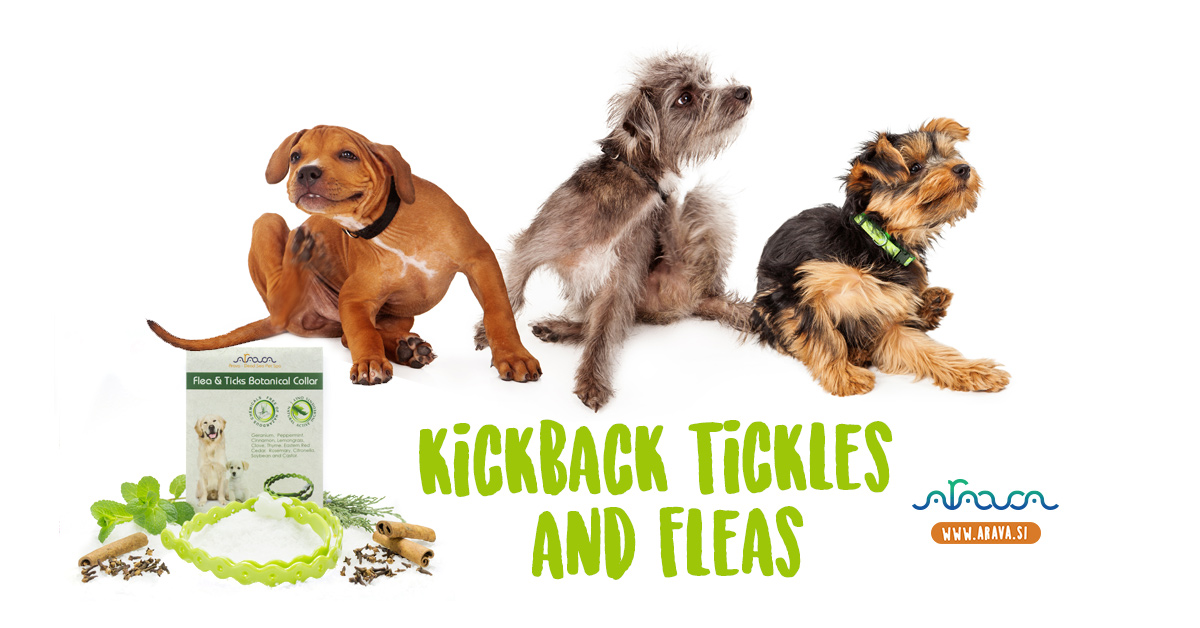Summer is coming and we will soon be headed to the beach or the mountains with our dogs, they will get to swim in the lakes and enjoy in the sun. However, summer can also bring trouble, of which we should be aware to keep our beloved pet safe. Here are a few common summertime health risks for dog owners to look out for.

Insects
Insects are at their most active in summer months and their bites can pose a considerable threat to our pups. We should especially look out for ticks and mosquitos, which spread a number of diseases in both animals and humans. Fleas are also a bigger problem in summer as warmth and humidity speed up their life cycle. To protect our dog, we should give them either preventative topical ointments or collars.
Dogs are curious animals that love to chase things including insects, which can quickly result in a bee, wasp or hornet sting. If that happens, apply a cold compress to the area and keep a watchful eye on your dog in case some serious symptoms develop. In that case, take it to the veterinarian.
Allergies
Seasonal allergies are common in the warmer months, because the environment is full of potential allergens. Grass, pollen, dust, mold, and fleas can trigger symptoms like constant itchiness, rashes, redness, shedding coat and sneezing. Dogs with allergies often develop problems with their ears. Signs that something is wrong are scratching, head shaking, hair loss around the ears, unpleasant smell or discharge.
If your dog develops any of those symptoms, you should see a vet. However, you can considerably ease the symptoms by cleaning the dog’s coat after every walk. This way, you remove the allergens that would otherwise cause a problem. One way to do it is by using Arava Paws&Body Wipes. They nourish and are antiseptic, perfect for wiping the whole body. Instead of using wipes, you can bathe your dog with just water or with a good quality shampoo. Arava Aromatherapy Shampoo is a great choice in this case, because it also soothes irritated skin and itchiness, heals, nourishes and disinfects.
Hot spot
A localized infection called hot spot most often appears on irritated areas of the skin due to allergies, fleas or insect bites. When dogs chew, lick and scratch that area it becomes red, moist, itchy, inflamed and prone to secondary bacterial infection. To help with hot spot therapy you can use Arava Aromatherapy shampoo and Therapeutic Black Mud, which soothes and cools irritated skin, calms itchiness, disinfects because if its antibacterial and antifungal activity, heals and dries minor lesions.
Heat stroke
Leaving a dog in in a car with closed windows on a hot summer day is probably the most common cause of heat stroke. Body temperature rises dangerously, which leads to lethargy, weakness, fast and heavy breathing, restlessness, bright red tongue, not being able to stand up… In worst cases, it can lead to collapse or coma. Puppies, old, overweight, sick, dark coloured or short-nosed dogs are at greater risk to develop heat stroke.
You must always provide fresh water, shadow or a cool place to hide from the heat. Never go for a walk when it is the hottest and never leave a dog in a car without a/c turned on.
Sunburn
Dogs with light skin and a short or thin hair coat are particularly prone to sunburn. Those appear as red skin with hair loss, dogs often scratch this area and cry when they do that because it is very painful. The most common sites for sunburn are the nose, ear tips and abdomen.
Another thing that can be very unpleasant is asphalt, which turns very hot in the summer heat and causes burns. So walk your dog when it is not extremely hot or stay away from sidewalks or any paved areas to avoid burning. To protect your dog’s paws from hot asphalt you can use Arava Paws Protector, which protects, nourishes and gently disinfects paw pads to keep them healthy. It absorbs very quickly, so it does not leave stains on the floor.
Swimming
There is nothing quite as refreshing as taking a swim in a lake or the sea. However, because dogs have deep and long ear canals, the moisture can easily get trapped inside. This makes them a perfect environment for developing an ear infection. To avoid this problem, try to keep your dog’s ears dry and clean. This can be achieved by routinely using Arava Bio enzymatic Ear Powder that keeps ears dry and acts as an antiseptic because it binds moisture and ear wax.
Maruša Ahaj, dr. vet. med.
